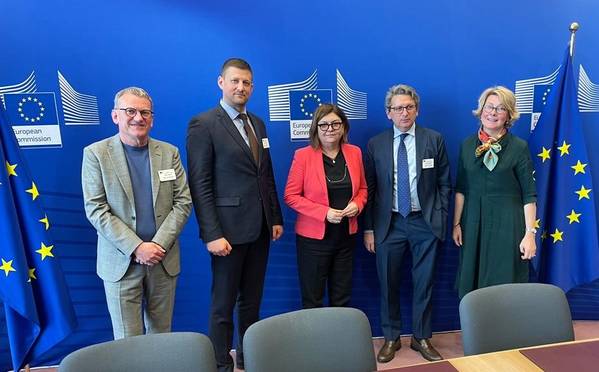
The European Sea Ports Organisation (ESPO) has welcomed the preliminary agreement between EU co-legislators on the FuelEU Maritime regulation.
The European Parliament and Council have agreed on the details of the regulation which will ensure that the greenhouse gas intensity of fuels used by the shipping sector will gradually decrease over time, by 2% in 2025 to as much as 80% by 2050. The targets cover CO2 as well as methane and nitrous oxide emissions over the full lifecycle of the fuels. The aim is to promote the use of cleaner fuels and energy and complements the provisional agreement to include shipping emissions in the EU Emissions Trading System (EU ETS).
The new rules also introduce an additional zero-emission requirement at berth, mandating the use of on-shore power supply or alternative zero-emission technologies in ports by passenger ships and container ships.
ESPO says the ambitious requirements for ships to reduce emissions starting in 2025 will help drive the uptake of alternative fuels in shipping, as well as help ensure the use of shore power. The organisation further welcomes the requirement for ships to use shore side electricity at berth in Trans-European Transport Network (TEN-T) ports as well as in other ports which installed this infrastructure starting in 2030.
However, the obligation comes with some exceptions that risk further delaying and limiting the use of the shore side power, said ESPO in a statement. For ports, in line with the upcoming new Alternative Fuels Infrastructure Regulation (AFIR), 2030 will be the deadline for having shore side electricity infrastructure in place. Ports therefore strongly hope for the engagement of shipping lines to use shore side electricity when available before 2030.
“The requirements for ships when to use of electricity at berth will hopefully break the chicken and egg discussion,” says ESPO’s Secretary General Isabelle Ryckbost. “We hope however that the flexibility given to shipping lines to decide their own greening path will also be mirrored in the upcoming agreement on AFIR. There is no time and no money to lose, for shipping lines nor for ports.”
The political agreement reached on FuelEU Maritime must now be formally adopted. Once this process is completed by the European Parliament and the Council, the new rules will be published in the Official Journal of the European Union and enter into force 20 days after publication.
“With the long-term outlook of this agreement, we are sending a clear signal to the sector across the value chain, from shipowners and operators to fuel producers, shipyards and equipment manufacturers, that it is worthwhile and necessary to invest in sustainable maritime fuels and zero-emission technologies,” said Adina Vălean, Commissioner for Transport.
In the EU, waterborne transport generated 3 to 4% of total CO2 emissions in 2021.



